What You Need to Know About Coconut Water
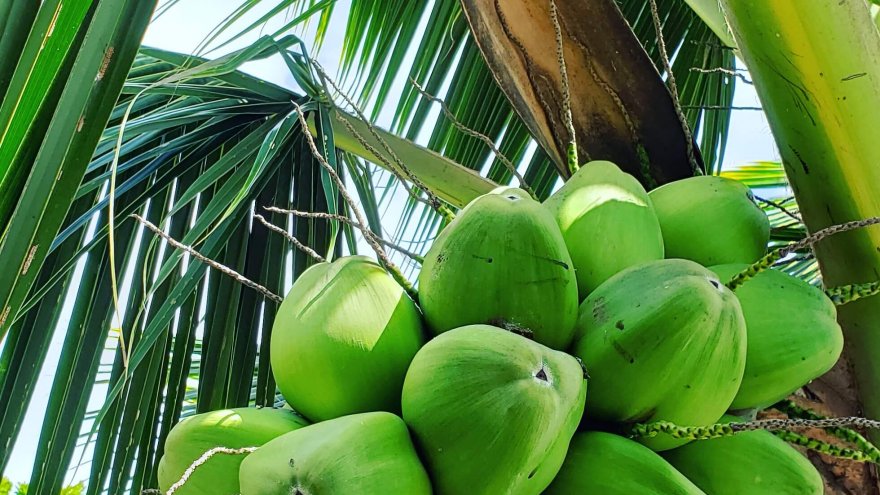
With summer just around the corner, we can look forward to sunshine, longer, warmer days… and becoming a hot, sweaty mess by the end of a run! Staying hydrated is a must if you’re running in the heat, and with so many sports drinks on the market, you can easily find one that will replace the electrolytes lost when you sweat excessively.
Since coconut water is marketed as an excellent source of electrolytes and is made from fruit, many runners assume that it is a healthier choice for replacing electrolytes depleted while training in the heat. As electrolyte sources, it’s true that coconut water and traditional sports drinks like Gatorade and Powerade have a lot in common, usually containing the same amount of calories. But their differences can make or break your next run if you drink coconut water when you should be consuming a sports drink.
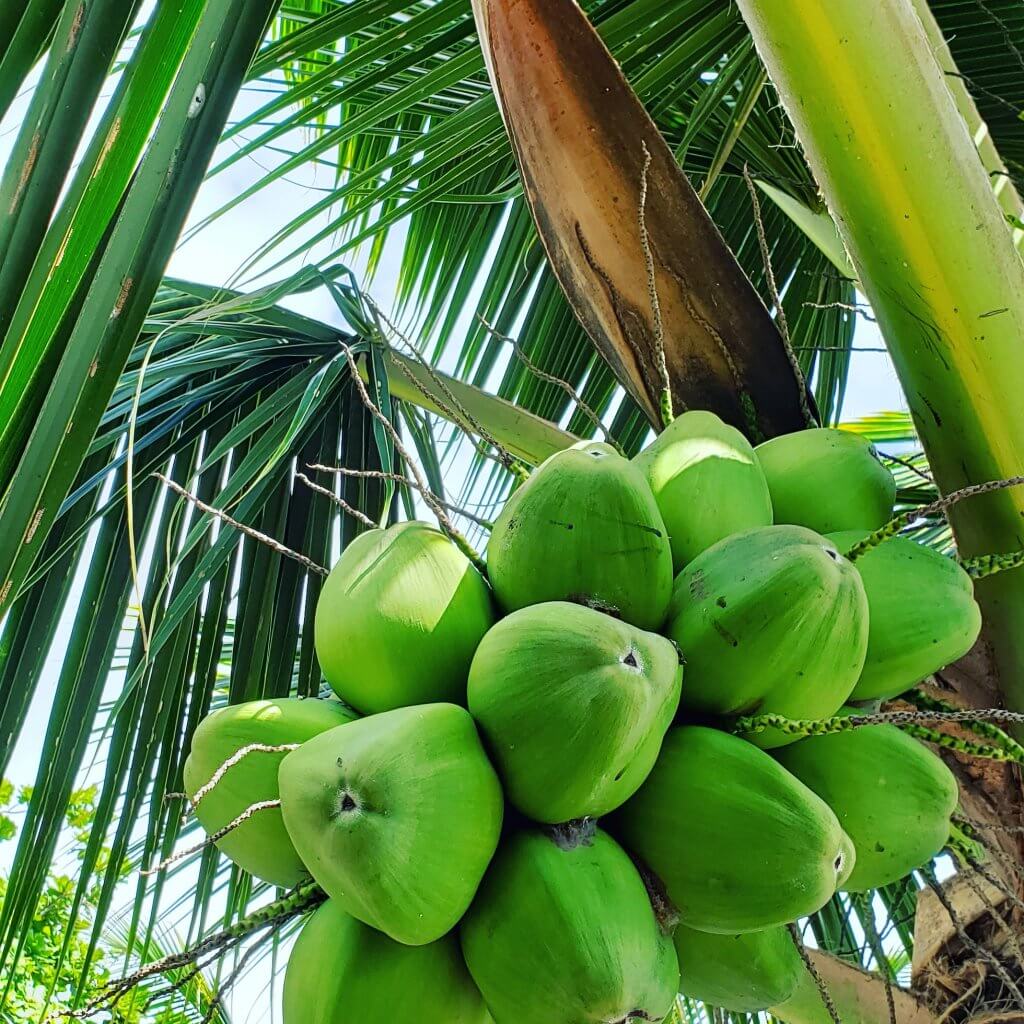
not all electrolytes are the same
If your electrolyte levels are balanced, this improves digestion, ensures that cardiac, muscular, and nervous systems function properly, and is key for maximizing training and successful racing. When your electrolytes are imbalanced, you risk facing fatigue, muscle cramping, side stitches, and worse during your workout.
Not all electrolytes are the same either, and knowing your electrolytes is key to safely hydrating and recovering effectively after logging those miles. For a runner, the essential electrolytes are calcium, magnesium, potassium, and sodium. We lose these electrolytes when we sweat, and consequently lose them at a higher rate when we run on hot, humid days. While running, we lose sodium through our sweat more than any other electrolyte, however.
so why is everyone nuts about coconut water?
A nutritious source of easily digested carbs in the form of electrolytes and sugar, coconut water is a clear liquid inside the fruit that is drained from young coconuts that are still green. Coconut milk and coconut oil are derived from coconuts just as coconut water is, but unlike its high-fat milk and oil, the coconut’s water is fat-free. It is worth noting that coconut oil is reported to support healthy digestion, reducing the likelihood of becoming sick before a run, and guarding against stomach issues that some runners experience from exerting themselves during workouts.
Coconut water touts several health benefits as well. It is loaded with antioxidants that help to neutralize oxidative stress- LK – and free radicals generated from running and other exercises. The coconut’s water can be a good source of amino acids, the building blocks of protein, which are necessary for tissue repair after a hard run or race. Coconut water contains more of the amino acids alanine, arginine, cysteine, and serine than cow’s milk. This is fantastic news for runners since arginine is especially helpful in combatting physical stress, which we experience during challenging training.
Cytokinins, the hormones responsible for plant growth, are also found in coconut water. Several studies suggest that these hormones have properties that fight aging and even cancer.
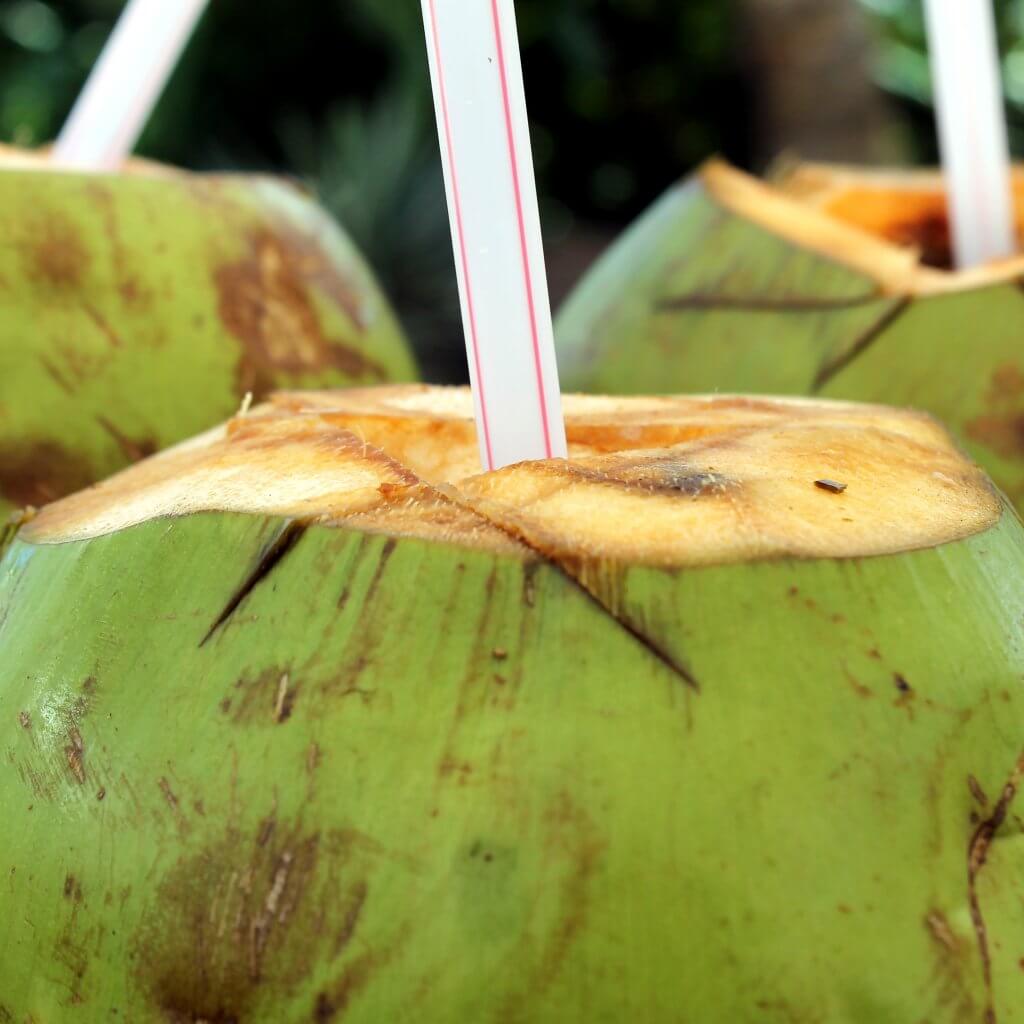
At almost 40 calories for every eight ounces, coconut water is a low-calorie drink when compared to other hydrating drinks, many of which are full of excess sugars. Unflavored coconut water contains only 5.45 calories, 1.3 grams of sugar, 61 mg of potassium (as much potassium as a banana), and 5.45 mg of crucial sodium.
Experts report that two-thirds of us, including runners, do not have enough magnesium in our diet. Low energy levels and other issues result from having a magnesium deficit. Fortunately, coconut water has nearly 14 percent of our daily magnesium needs.
Coconut water is also high in the electrolyte potassium, which enables fluids and nutrients to move throughout cells membranes. This movement permits the cells to perform metabolic activities such as muscle contraction. Coconut water also contains other electrolytes, including manganese and even some sodium. Electrolyte amounts vary, however, as the coconut water is affected by changes that occur as the coconut is maturing.
If you just want something natural to sip on when you are not exercising or for especially short, easy workouts, coconut water will do the trick. If you are sweating a lot during prolonged or demanding exercise, it’s the wrong choice.
what runners need to know about coconut water
Physiologically, runners need to replace the sweat lost during a sweaty workout, and an effective sports drink will replenish sodium and electrolytes lost when we are running.
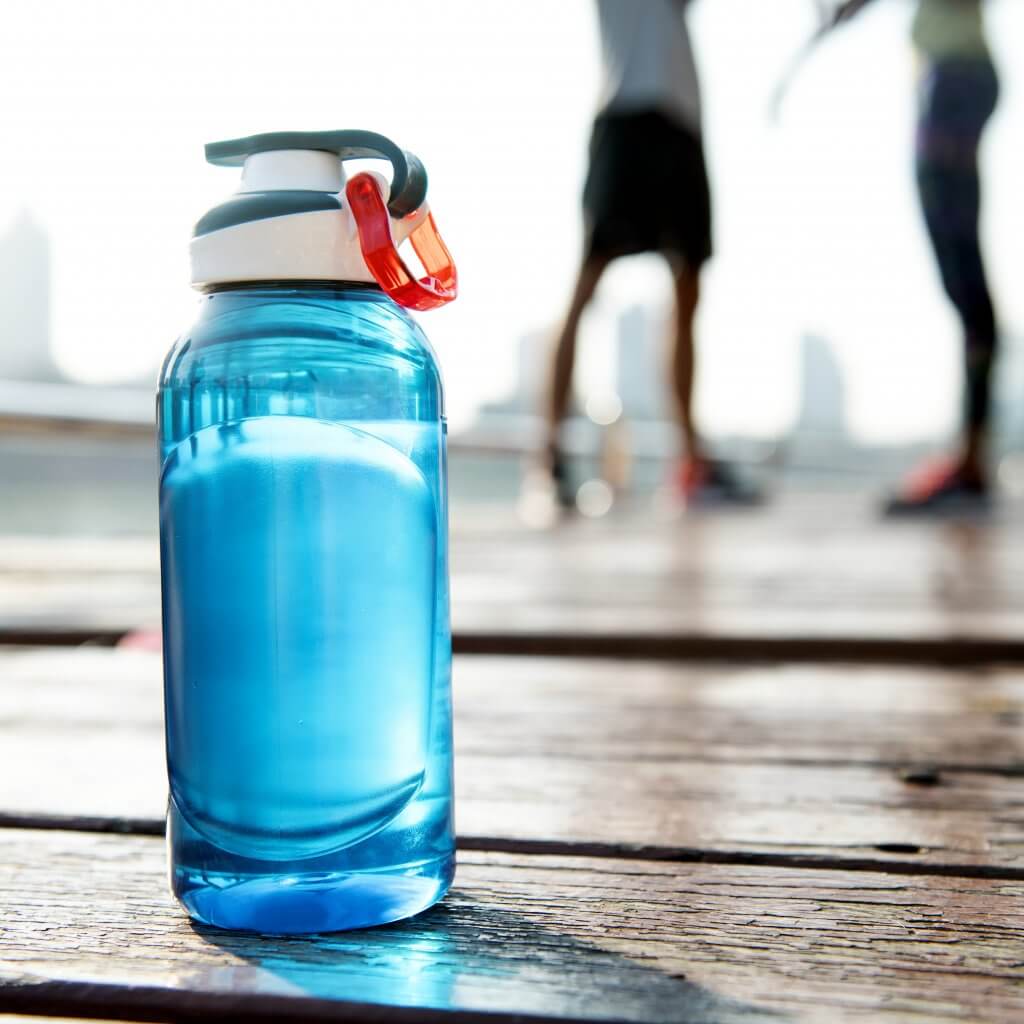
According to sports nutritionist Nancy Clark, author of Nancy Clark’s Sports Nutrition Guidebook, coconut water is low in carbohydrates and sodium and rich in potassium, but this is not what an athlete’s body needs during training that is tough on your body.
“Whether you choose a sports drink, coconut water, or plain water, they all work to keep your body hydrated,” says Clark. “The challenge is when you exercise strenuously for more than three hours in the heat and lose lots of body fluids, you need easily-absorbed carbs for quick energy and to replace lost electrolytes like sodium and potassium.”
coconut water and the truth about potassium
The blood or vascular space that feeds our sweat glands have high sodium and low potassium concentration, which is represented in our sweats’ high sodium and low potassium content. 16 oz of sweat has 110 mg of potassium at most. But that 16 oz contains a minimum of 200 mg of sodium and as much as 700 mg of sodium.
Our cell membranes pump potassium into cells and pump sodium out of cells, enabling our bodies to achieve healthy cell communication and function. Water equilibrates between blood vessels, so when we consume an excess of sodium, water tends to transfer into our blood vessels. When we consume an excess of potassium, however, water tends to transfer into our cells instead.
Sweating is the body’s normal and healthy way of regulating body temperature, as our bodies release a salt-based fluid from our sweat glands when we perspire. Increasing the water volume in our blood vessels is crucial during running, delivering the necessary blood volume to eliminate heat, and provide oxygen and valuable fluid for sweating. Although perspiration contains several electrolytes, sodium is the primary electrolyte present in our sweat.
Potassium is the primary electrolyte in coconut water, with16 oz of coconut water containing a whopping 950 mg of potassium, but a mere 50 mg of the sodium that we need post-sweat session! Hydration sports drinks often provide the necessary balance of electrolytes while out running, taking the guesswork out of sodium replenishment.
Coconut water is not only a poor substitute for electrolyte sports drinks but drinking only coconut water during prolonged exercise in the heat could potentially trigger a harmful electrolyte imbalance in your body known as hyponatremia. This condition can occur if you drink too much water during exercise, which dilutes the sodium (or salt) levels in your blood serum. Hyponatremia may occur if you only consume water during taxing workouts in the heat. If you consume only coconut water, the heightened concentration of potassium can worsen the imbalance.
coconut water versus sports drinks
For anyone who is simply looking for a summertime beverage to enjoy poolside, there are certainly worse drinking options than coconut water, so skip the alcohol or soda, and sip away! Be sure to check the labels, however, as some coconut waters have added sugar and preservatives. Look for coconut water that is free of additives and contains 100% pure coconut water. If you see “certified organic fair trade” on the label then you’ll know that the company you are buying that refreshing coconut water from practices greater equity in international trade.
Consuming water and sodium during and after a hot run is much more important to replacing electrolytes and maintaining an adequate blood volume than consuming the potassium in coconut water. Drinking the right balance of sodium and water will also help prevent hyponatremia.
So what should you be drinking while training? Choose a hydrating sports drink, mix, or electrolyte supplement with sufficient sodium to replace the electrolytes you lose sweating, and to provide some energy for your workout. Look for drinks containing all the essential electrolytes, or hydration mixes and powders that you can add to water. The ideal sports hydration drink mix will provide a balance of electrolytes. 14 fluid oz of sports drink should provide around 45 mg of calcium, 55 mg of potassium, 50 mg of magnesium, and 380 mg of sodium.
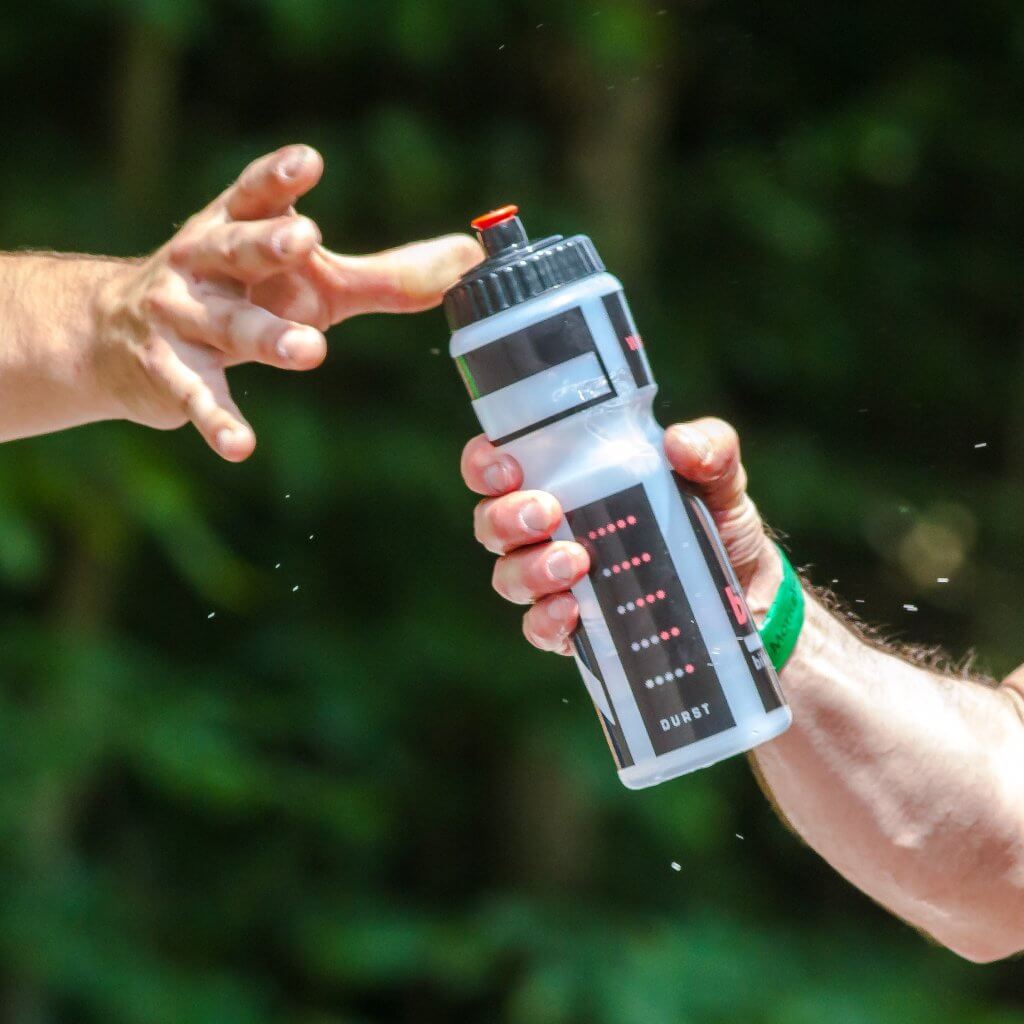
It is beneficial to consume sports drinks that have high amounts of simple sugars during demanding training or racing, but sports drinks are not the best choice for replenishing electrolytes throughout the day. To restore electrolytes in between your workouts, avoid drinks and mixes with high amounts of artificial and simple sugars. Opt for drinks high in electrolytes that contain low amounts of simple sugars instead.
Although sweating it out during a long, humid run will slightly deplete potassium levels, that workout will significantly drain your sodium tank. It’s not necessarily a bad idea to include coconut water or other natural foods and drinks that contain potassium in your post-run meal. Just make sodium replacement the priority during your actual run or race for optimal performance!
Sources
- , Comparison of coconut water and a carbohydrate-electrolyte sport drink on measures of hydration and physical performance in exercise-trained men. , Sports Nutrition article
- , Exercise-associated hyponatremia. , Health article
- , The Truth Behind The Coconut Water Craze, Healthcare article
- , Nancy Clark's Sports Nutrition Guidebook, Sports nutritionist website
Latest Articles
 Is Running on a Treadmill Easier Than Running Outside?Runners have their own preferences, whether it is treadmill running, running outside on the road, or exploring trails. So...
Is Running on a Treadmill Easier Than Running Outside?Runners have their own preferences, whether it is treadmill running, running outside on the road, or exploring trails. So... Is It OK to Use Trail Running Shoes on the Road?While trail running shoes can be used on roads, especially in situations where a runner encounters mixed terrains or pref...
Is It OK to Use Trail Running Shoes on the Road?While trail running shoes can be used on roads, especially in situations where a runner encounters mixed terrains or pref... How to Fix Sore Quads After Running?Rest, ice, gentle stretching, and over-the-counter pain relievers can help soothe sore quads after running. Also, ensure ...
How to Fix Sore Quads After Running?Rest, ice, gentle stretching, and over-the-counter pain relievers can help soothe sore quads after running. Also, ensure ... 10 Fruits With The Most Electrolytes to Replace Sports DrinksThese fruits are high in electrolytes such as potassium, magnesium, and calcium, essential for hydration, muscle function...
10 Fruits With The Most Electrolytes to Replace Sports DrinksThese fruits are high in electrolytes such as potassium, magnesium, and calcium, essential for hydration, muscle function...

